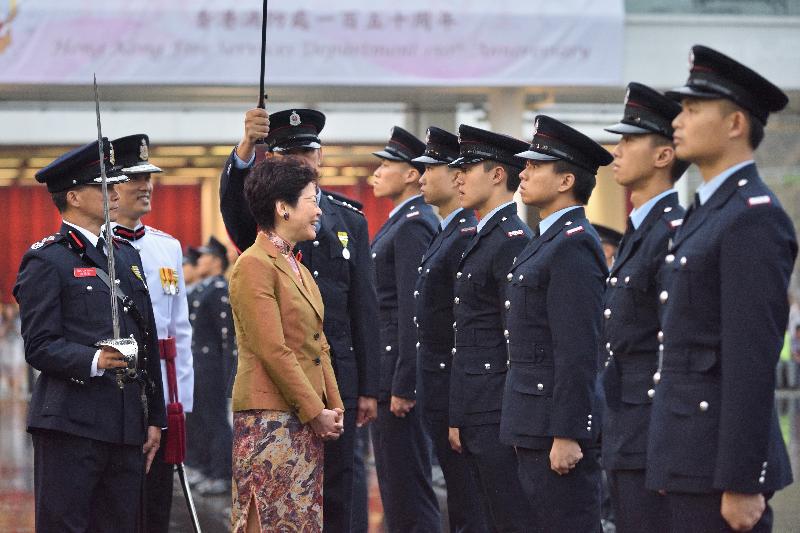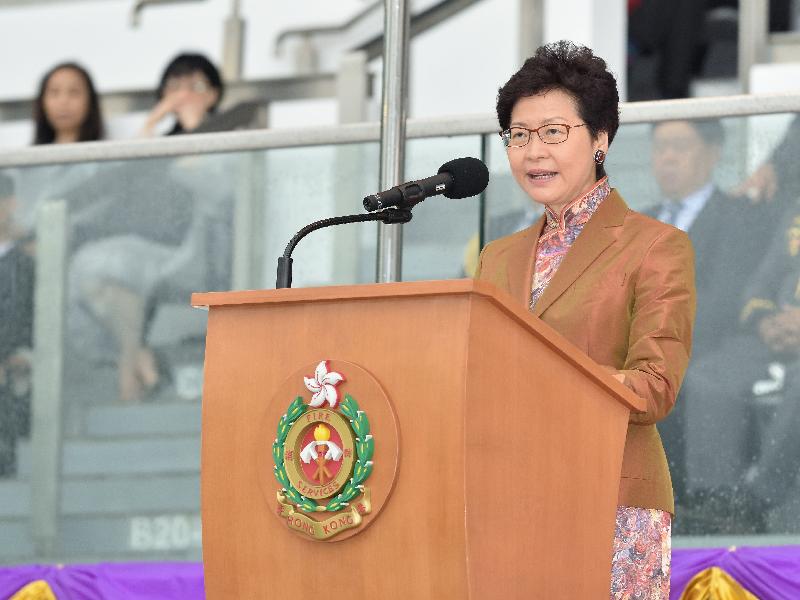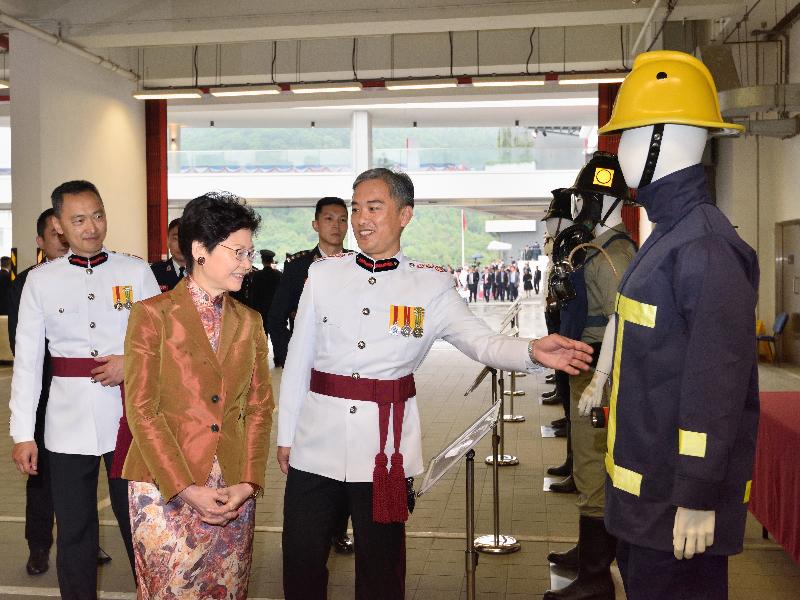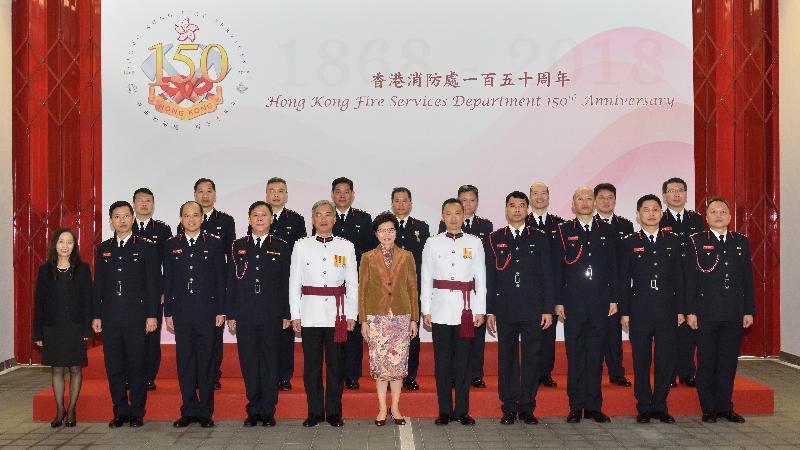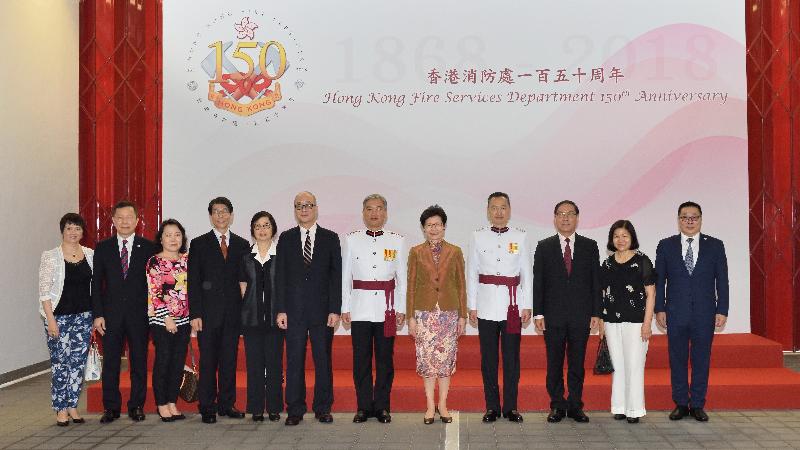Following is a question by the Hon Vincent Cheng and a written reply by the Secretary for Home Affairs, Mr Lau Kong-wah, in the Legislative Council today (May 9):
Question:
As incidents in which young people committed suicide in an attempt to dodge the huge debts built up by gambling have been heard from time to time in recent years, some concern groups have all along been requesting, over the years, the Government to raise the legal gambling age from 18 to 21. On the other hand, the Government established the Ping Wo Fund (the Fund) in 2003 to sponsor preventive and remedial measures for gambling-related problems. To enhance the promotion of anti-gambling messages among young people and in the community, the Fund introduced the Ping Wo Fund Sponsorship Scheme and the Ping Wo Fund School Project Grants (the two sponsorship schemes) to sponsor non-governmental organisations and schools respectively for organising anti-gambling publicity and education activities. In connection with curbing the prevalence of youth gambling, will the Government inform this Council:
(1) whether it knows, in each of the 2015-2016 and 2016-2017 financial years, (i) the betting turnover received by the Hong Kong Jockey Club (HKJC) in respect of each type of betting activities and the respective percentage of each of such betting turnover in the total betting turnover (set out in a table), and among such betting turnover, (ii) the year-on-year growth rate of football betting turnover and the percentage of football bets which were placed online;
(2) whether it knows, in each of the past five years, the number and percentage of HKJC betting account holders who were aged below 21; whether the authorities will examine afresh the proposal to raise the legal gambling age to 21; if so, of the details; if not, the reasons for that;
(3) given that HKJC has in recent years upgraded its mobile betting services (such as placing bets via mobile applications) and introduced different betting types, whether the authorities will study if such practices have resulted in the prevalence of youth gambling; if so, of the details; if not, the reasons for that;
(4) whether the authorities have assessed the effectiveness of the Fund; if so, of the details; if not, the reasons for that; given the upcoming World Cup which is a widely attention-grabbing sports event among young people, whether the authorities have conducted targeted public education and publicity work to curb the prevalence of youth gambling; if so, of the details; if not, the reasons for that;
(5) of the respective numbers of applications received and approved, and the total amounts of grants allocated, by the two sponsorship schemes in each of the past five years (set out in a table);
(6) whether it knows the numbers of requests for assistance received by the gambling counselling hotlines operated by various community organisations, and the attendances of the services provided by the four counselling and treatment centres financed by the Fund, in each of the past five years (set out in a table); and
(7) of the respective numbers of persons prosecuted and convicted for participating in illegal football betting activities in each of the past five years, and the total betting turnover involved; whether the authorities have reviewed the effectiveness of the related law enforcement operations; if so, of the details; if not, the reasons for that?
Reply:
President,
It is the Government's policy not to encourage gambling as gambling addiction may cause harm to individuals and to society. However, we understand that there is a certain demand for gambling in society and it is a pragmatic approach to allow a limited number of authorised gambling channels. Attaching great importance to prevention and alleviation of problems arising from gambling, the Home Affairs Bureau (HAB) has adopted a multi-pronged strategy including regulation over gambling activities through legislation, law enforcement against illegal gambling, public education and publicity on harm of gambling addiction, and provision of counselling and support services to people in need.
To finance preventive and remedial measures for problems arising from gambling, the Government established the Ping Wo Fund (the Fund) in 2003 which provides sponsorship for: (1) researches of gambling-related issues and problems; (2) public education and other measures to prevent and alleviate gambling-related problems; and (3) counselling, treatment and other support services for people with gambling disorder and those affected by them.
The reply to the question raised by the Hon Vincent Cheng is as follows:
For 2015-16 and 2016-17 financial years (Note 1), the Hong Kong Jockey Club (HKJC) recorded respectively total betting turnovers of $202.7 billion and $216.5 billion from various betting activities, among which about 60 per cent were bets placed online. A breakdown of betting turnover by betting activity is tabulated below:
| Betting turnover ($) |
2015-16 financial year
(% in total betting turnover) |
2016-17 financial year
(% in total betting turnover) /
[year-on-year change] |
| Horse racing |
107.4 billion
(53.0%) |
115.8 billion
(53.5%) / [+7.8%] |
| Football |
86.8 billion
(42.8%) |
92.7 billion
(42.8%) / [+6.8%] |
| Mark Six Lottery |
8.5 billion
(4.2%) |
8 billion
(3.7%) / [-5.9%] |
Note 1: The HKJC's financial year runs from July 1 to the following June 30.
(2) According to the HKJC, the percentage of betting account holders aged below 21 remained at around 1.3 per cent to 1.7 per cent in all account holders over the past five years.
The age of 18 is generally regarded as the indicator of adulthood in Hong Kong, and it is also the statutory age for legal gambling. As revealed by the Hong Kong Polytechnic University's study on Hong Kong people's participation in gambling activities, commissioned by the Fund and completed in 2017, over 60 per cent of the respondents considered it appropriate to set the legal gambling age at 18.
We note that certain countries and places have their legal gambling ages set at 21. Nevertheless, given that these overseas places do not share the same background and objective factors with Hong Kong, their approaches may not be directly applicable here. In fact, restrictions on the gambling age differ around the world and there is no standardised practice. For example, in the United Kingdom, people can enter casinos when they are aged 18 but the minimum age for buying lottery tickets is only 16; in Singapore, the statutory age for entering casinos is 21 but that for participating in betting on horse racing or sports and buying lottery tickets remains at 18; and in Macao, people aged below 21 are prohibited from entering casinos but the age for legal participation in betting on horse racing, football, basketball, etc. remains at 18.
Regarding any proposal to raise the legal gambling age in Hong Kong, the Government has to examine prudently and consider if it will, on the contrary, increase the risk of young people aged between 18 and 21 participating in illegal gambling and developing gambling behavioural problems. Raising the legal gambling age may not necessarily be the most effective way to tackle the gambling-related problems (in particular, illegal online gambling) of youth.
(3) to (6) The Government attaches great importance to prevention of problems arising from gambling, especially those among young people. At present, a number of conditions have been imposed under the licences of betting on horse racing, Mark Six Lottery and football issued to the HKJC requiring the licensee to adopt measures to minimise the negative impact of gambling on the public, especially young people (e.g. the licensee shall not permit juveniles to enter its betting centres, shall display notices to remind the public of the gravity of excessive gambling and provide relevant information, shall not target juveniles in its advertising or promotional activities, shall not exaggerate the likelihood of winning or imply that betting is a means of increasing income, etc.).
The Fund currently finances four counselling and treatment centres to provide people with gambling disorder and those affected by them with various services, including telephone counselling, face-to-face counselling and mutual help groups as well as psychiatric treatment in serious cases. These four centres are the Tung Wah Group of Hospitals Even Centre, the Zion Social Service Yuk Lai Hin Counselling Centre, the Caritas Addicted Gamblers Counselling Centre and the Sunshine Lutheran Centre of the Hong Kong Lutheran Social Service. People with gambling disorder and their family members may call the gambling counselling hotline (183 4633) to receive preliminary counselling services immediately. Information on other community organisations providing such services is not available.
The number of enquiries received by the four counselling and treatment centres via the Fund's hotline and the number of beneficiaries receiving their counselling and treating services in the past five years are tabulated below:
| |
Number of enquiries received via
Fund's hotline |
Number of beneficiaries receiving counselling and treatment services |
| 2013 |
9 064 |
1 989 |
| 2014 |
8 975 |
1 913 |
| 2015 |
8 429 |
1 933 |
| 2016 |
8 818 |
1 927 |
| 2017 |
9 636 |
2 229 |
Public education and prevention of gambling-related problems are also key areas of work of the Fund. The Fund implements ongoing public education on prevention of gambling-related problems to enhance promotion of anti-gambling messages among the public (especially young people). The Fund introduced the Ping Wo Fund Sponsorship Scheme and the Ping Wo Fund School Project Grants in 2009 and 2010 respectively to sponsor non-governmental organisations and schools for organising anti-gambling publicity and education activities. The number of applications received by and sponsorship granted under the two schemes in the past five years are tabulated below:
Ping Wo Fund Sponsorship Scheme
| |
Number of applications received |
Number of applications approved |
Amount of sponsorship granted ($) |
| 2013 |
24 |
12 |
3,370,000 |
| 2014 |
26 |
14 |
3,940,000 |
| 2015 |
23 |
21 |
7,560,000 |
| 2016 |
44 |
24 |
8,460,000 |
| 2017 |
29 |
17 |
4,260,000 |
Ping Wo Fund School Project Grants
| |
Number of applications received |
Number of applications approved |
Amount of sponsorship granted ($) |
| 2013 |
47 |
44 |
110,000 |
| 2014 |
39 |
36 |
110,000 |
| 2015 |
52 |
50 |
150,000 |
| 2016 |
65 |
65 |
230,000 |
| 2017 |
53 |
52 |
180,000 |
As indicated in the report of the Hong Kong Polytechnic University's study mentioned in my reply to part (2), there was a decreasing trend in the prevalence rate of gambling among Hong Kong people (especially young people). The prevalence rate of gambling among secondary students dropped from 33.5 per cent in 2012 to 21.8 per cent in 2016. The drop was significant as compared to the rate of 54.0 per cent recorded in 2001. On football betting, the prevalence rate of gambling among secondary students decreased significantly from 4.7 per cent in 2012 to 1.2 per cent in 2016, and this was far lower than 6.8 per cent in 2005. The report also pointed out that such continuous improvement might be resulted from publicity and education efforts jointly made by the Government and the Ping Wo Fund Advisory Committee as well as other remedial measures.
The 2018 World Cup will be held from June to July 2018. In this connection, the Fund and the HAB have started since March 2018 and will continue until September 2018 a large-scale territory-wide "Enjoy the Game, Say No to Gambling" publicity campaign, under which a series of activities and publicity events will be held across the territory and at district level. We will also step up online publicity to raise public awareness of gambling disorder and promote the messages against excessive gambling. The campaign comprises a series of district and territory-wide activities, such as the launch of a publicity truck, a carnival, a game to break the Guinness World Records and football matches, for members of the public to participate free-of-charge. Separately, the HAB has produced a new Announcement in the Public Interest for television and radio broadcast to discourage excessive gambling among the public and encourage people with gambling disorder and those affected by them to call the gambling counselling hotline for help. During the World Cup period, the four counselling and treatment centres financed by the Fund will specifically enhance support for the gambling counselling hotline.
(7) In the past five years (i.e. from 2013 to 2017), the Police arrested a total of 397 persons in law enforcement operations against bookmaking in at least 250 cases involving football betting and mixed betting (i.e. a mix of horse-racing, football, Mark Six, etc.). The betting slips or cash seized in these operations amounted to around HK$1.8 billion. The Police do not maintain relevant prosecution and conviction figures.
The Police strive to combat illegal football gambling through a four-pronged approach of prevention, education, intelligence-gathering and enhanced law enforcement, and evaluate the effectiveness from time to time. The Police's Organized Crime and Triad Bureau will, in collaboration with various police districts, closely monitor the illegal gambling activities which may take place during the 2018 World Cup, proactively gather intelligence, and plan for law enforcement operations in light of the circumstances in order to combat such crimes.

